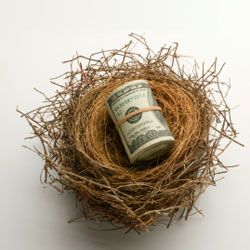Retirement just kind of happens. If we live long enough, we'll eventually reach a point where we either leave our careers, opt for another, less intense work life, or finish working for a living altogether. There was a time when companies included pension plans in their compensation packages and employees could look forward to receiving a percentage of their salaries to live on for the rest of their lives. Social Security benefits used to be enough to offset the cost of living, so that a person could retire based on Social Security income alone. In the 21st century, neither of these hold true any longer.
Instead, it's up to the individual to create a comfortable retirement for him or herself. Luckily, those who still look forward to retirement will have the longest post-retirement life spans, thanks to continued advances in health care. In other words, it's a good idea to do as much as possible to ensure that you will have a secure and enjoyable retirement.
Advertisement
Learning precisely how to do that can be daunting. Speaking with a certified financial planner can certainly help, but there are steps you can also take to help create a bright future after your working life ends.










